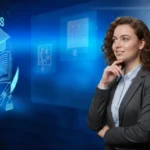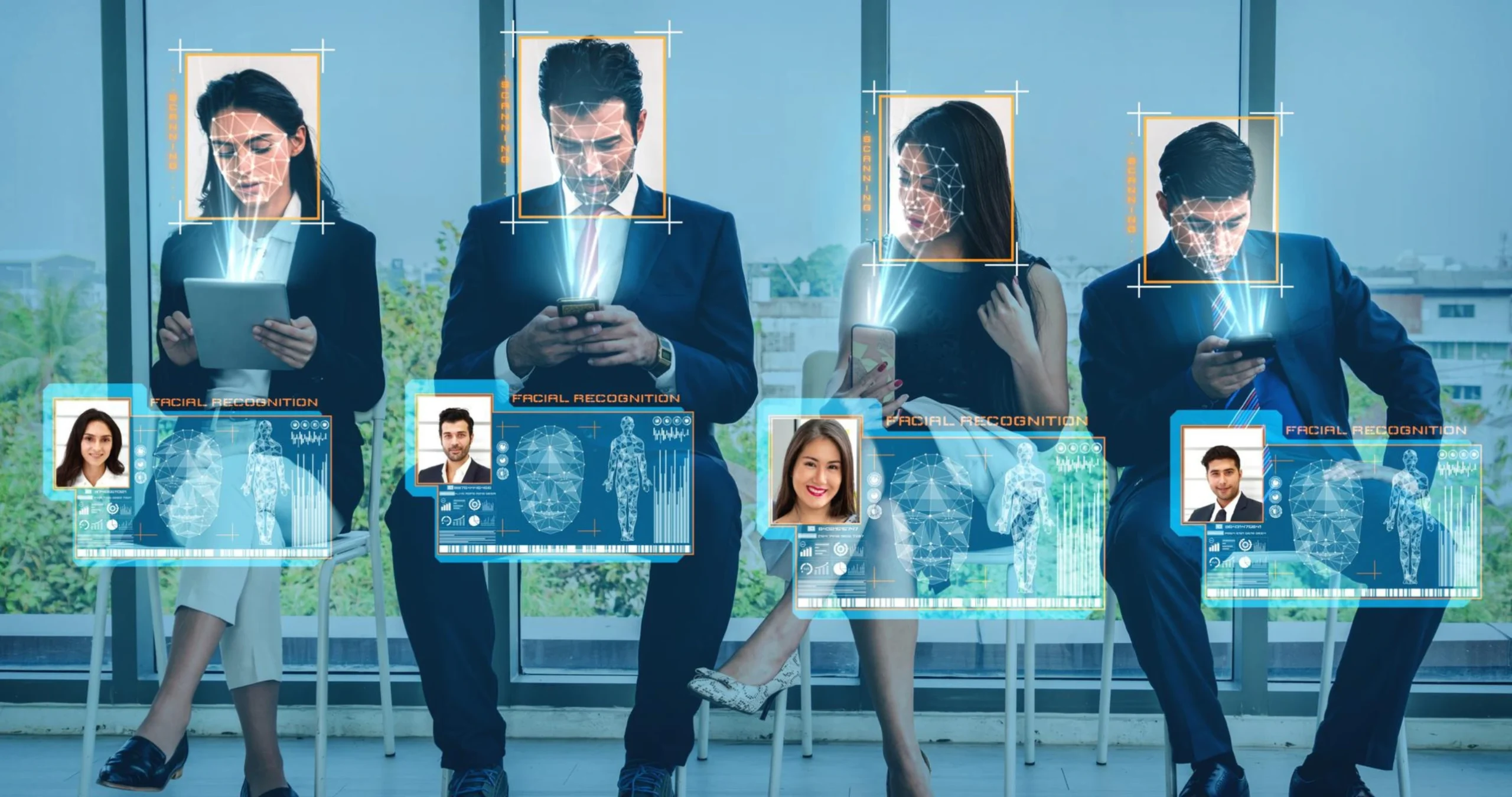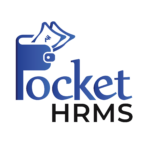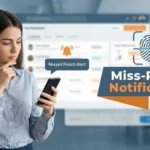
AI in Recruitment: Benefits, Challenges, Use Cases + Examples
Table of Contents

Reading Time: 9 minutes
Artificial Intelligence or AI has taken over the world, at least figuratively. With the ever-increasing popularity of AI platforms such as ChatGPT, Bard, Bing, DALL-E, Midjourney, etc. people are flocking to use it in their daily lives and improve their efficiency in undertaking their daily tasks.
The rising popularity of AI-based applications has also resulted in the active usage of AI and hiring process improvement, for enhancing the overall efficiency of the HR department. Many modern recruitment management system have already deployed AI such as ChatGPT for recruitment letter templates, which streamlines the numerous duties of HR such as recruitment, performance management, schedule management, employee engagement and more.
However, we have also observed that the upper management and HR managers raising doubts about using AI for recruitment. Hence, with this blog, we will be explaining the various aspects of deploying AI in talent acquisition, as we understand that it is a crucial aspect for any company since it helps choose the top talent to work for their organization.
Role of AI in Recruitment Process
The role of AI in recruitment refers to the active use of AI in recruitment and selection with tools that employ artificial intelligence to undertake the recruitment tasks allocated to it. For example, hiring managers are already using AI-powered recruitment tools such as ChatGPT for recruitment, to effectively develop job descriptions, screen applicant resumes, shortlist qualified candidates, as well as schedule and grade their interviews.
Since sifting through the candidate talent pool is a time-consuming and strenuous task, HRs can use AI-powered recruitment tools to complete this task within no time. During the initial days of the HRMS, HRs allocated time-consuming manual work to their HRMS software, helping them streamline and automate their repetitive high-volume tasks.
AI is taking it multiple steps further by supporting them in undertaking creative tasks such as resume parsing, analysing interview behaviour, scheduling interviews and more. As a result, AI-based tools can provide multiple kinds of input to talent acquisition professionals, making them highly efficient at recruitment.
Also Read:
Benefits of Using AI in the Hiring Process
There are numerous benefits of using AI recruiting tools apart from the much-evident savings in time, effort, and money. For example, AI in the hiring process can analyse a candidate’s social media profile and help you understand whether they are an ideal fit for the company’s work culture.
Similarly, they can also help you avoid unconscious human bias in the recruitment process, making it fair for everyone involved in the process.
Let us check out some of the other benefits of AI recruiting technology:
➔ Reduced Time
The most significant benefit of AI tools in recruitment is the reduction in the time required to find and hire the best candidates for the company. Sifting through hordes of resumes is one of the most time-consuming tasks for a recruiter.
In this scenario, having an AI in hiring process vastly enhances the efficiency of HR by shortlisting the resumes of qualified candidates based on keywords and skills. While modern ATS can undertake this task, AI and hiring tools can take it one step further to fully automate the process, improving the efficiency of HR teams further.
➔ Quality Hiring
With the help of AI in hiring, HR can rest in knowing that the algorithm can easily parse through the resumes and shortlist the right candidates for the AI-based hiring team.
Additionally, it can also match the candidate’s behavioural traits with the company culture to choose the ideal candidate for the vacant position, leading to better quality hires. It can also learn the patterns from the company databases to match them with the candidate’s experience, knowledge and skillset for better matches.
➔ Improved Experience
AI in HR can also help in improving the overall candidate experience by automating several tasks related to recruitment and onboarding. For example, AI can quickly undertake background verification, as well as process documentation within seconds.
The use of AI in HR and recruitment can also be undertaken to communicate with the candidate as well, which is evident from the rampant use of ChatGPT in recruitment, as well as gathering feedback from them for enhancing the overall process.
➔ Easier Candidate Search
AI can also be instrumental in searching and approaching cold candidates who would be ideal for your company as it can easily match their profile with your company culture.
It can quickly scour online job portals, boards and social media to find the ideal candidates. Additionally, it can even interact with these candidates to help you understand their expectations better.
➔ Human Bias Avoidance
AI can also avoid intentional and unintentional bias since it works purely on logic, unlike human beings. As a result, you also get a diverse range of individuals which can have a highly positive impact on the organizational culture.
Since AI uses only data to assess candidates and reach conclusions, it can effectively find the ideal candidate while staying devoid of any human bias.
Use of AI Tools in the Recruitment Process
With the effective use of AI, organizations can scale up their artificial intelligence and recruitment processes with limited investment in technology. Since AI tools can search for thousands of candidate profiles in a minute, they can automate the candidate searching process.
Additionally, with the help of modern chatbots like ChatGPT, the AI can ask it to provide enhanced communication for keeping the candidate warm. There are several other ways to integrate artificial intelligence and recruitment process, with the best possibilities listed below:
1. Repetitive Tasks Automation
AI in hiring can be best utilized for automating the numerous clerical tasks related to recruitment such as entering the candidate details into the system, and calculating their potential productivity scores from their profiles, among others, thereby optimizing the time and cost for the entire AI recruiting process. It can even schedule interviews by considering the schedules of the recruiters, making AI technology versatile enough to handle such processes.
2. Automated Communication
Communication with the candidates can also be improved with the use of AI-powered tools as they can send personalized messages to the candidate as well as provide details regarding the organization without any human input. Keeping the candidates updated about the progress in the interviews also results in a positive impression of the company, making them effective promoters.
3. Simplified Document Reviews
An additional task that AI recruiting technology can undertake during the AI hiring process is the reviewing of candidates’ documents. Since it is much more efficient than that of humans, AI technology can review thousands of documents within minutes, streamlining the entire process. Additionally, AI recruitment tools can also update the candidates automatically, as well as gather feedback to ensure an engaging candidate experience.
4. Online Interviews
A modern AI-based recruitment management system can even conduct online interviews on behalf of the recruiter and provide their inputs on various factors of the interview such as the candidate’s expressions, their words and speech patterns, body language, and more. Such non-verbal communication cues often go unnoticed by a human interviewer, which can provide significant input regarding the individual being interviewed.
AI in Recruitment – Recruiter Transformation
AI is poised to transform the role of HR in recruitment and other areas. With the help of AI, recruiters would be able to search for candidates more quickly and find relevant matches who would also be an ideal fit for the company culture.
The interviewers can also gather in-depth insights into the candidate’s nature and answers with the help of AI, which can oversee the interview. Because of these factors, the overall quality of recruitment can be improved considerably.
Industry specialists believe that AI will not replace recruiters, but simply support them in undertaking their duties more efficiently. While AI could reduce the number of positions allocated for recruiters in a company, it will not be able to completely take over the process of hiring managers.
AI in hiring opens numerous excellent opportunities such as simplified sourcing and talent acquisition, enhanced candidate experience, quicker resume screening and shortlisting, assisted interviews, improved onboarding experience, and more. With the help of AI, recruiters can boost both the quality and quantity of hires, helping them stay competitive in the ever-changing job market.
AI in Recruitment Statistics
We have provided some more data-driven insights and recruitment statistics which is related to using AI-based hiring:
- On average, AI in hiring can reduce hiring time up to 23 hours, and the hiring costs by 75%.
- AI-based recruitment also results in 35% decreased turnover, 20% improved productivity & 4% increase in revenue per employee.
- 52% of recruiters find screening candidates to be the hardest part of the hiring process.
- 82% of candidates believe that the ideal hiring process should have both personal connections and innovative technologies.
- Providing consistent interview and hiring-related updates helps 67% of candidates have a positive impression of the company.
Also Read:
Challenges of AI in Recruitment
While there are many benefits of using AI in hiring, there are multiple challenges too. These challenges can hold you back from deploying AI for hiring, however, you can easily overcome these with some foresight and using the AI ethically.
Some of the most common challenges for implementing AI in HR recruitment are:
➔ Large Data Requirement
AI is trained using large databases. The larger the size of the database, the better the AI-based recruitment can perform its intended tasks. However, such large datasets are hard to come by in a single company.
For example, if you need to hire someone for the role of product manager, you will require thousands of resumes for that specific role, to ensure that the artificial intelligence in recruitment has a good knowledge of the traits required for this specific designation.
➔ Technology Adoption Barrier
Another major challenge is human nature which is not particularly happy with any change. HRs can think of AI as a hostile competitor and try to jeopardize the implementation efforts intentionally. Additionally, they can also be sceptical about the abilities of the AI algorithm to undertake their administrative tasks as well as they can.
➔ Limited Chatbot Integrations
Chatbot algorithms like ChatGPT in recruitment have developed enough to make them indistinguishable from human communication. However, they can hit a roadblock when bombarded by unexpected complex queries. Such failures of artificial intelligence in recruitment could tarnish the wow factor for a candidate, making them lose interest in your organization.
➔ Learned Bias
AI learns and evolves itself by machine learning and from patterns. Hence, if there is an inherent bias in the data being fed to the AI, it can learn the relative human bias and try to apply the same in the recruitment process.
This would prove detrimental to the entire concept of involving AI in the recruitment process, as avoidance of human bias is a very promising aspect of AI in hiring.
AI in Recruitment Examples
Major corporations have already started using AI in their hiring efforts to attract and retain the best candidates. While different companies are using it for different hiring-related tasks, the common goal is to streamline and automate repetitive tasks and optimize the process for quicker and better hiring results.
Following are some of the major AI in recruitment examples:
1. Amazon
Being one of the largest e-commerce websites in the world, Amazon has the resources to develop an AI-based candidate evaluation system that can identify potential employees who are an ideal fit for the organization. AI in recruitment process can analyze the resumes of job seekers and compare them with the existing employee profiles to understand whether they will be a success.
2. Siemens
Siemens AI recruitment software uses artificial intelligence to automate their candidate screening process by analyzing their resumes and profiles. It also evaluates their assessment results for screening them and shortlisting them for suitable roles. Siemens’ recruiting software also utilizes AI-based chatbots for an enhanced personalized candidate experience.
3. Unilever
Unilever has integrated AI in recruitment process by using it to evaluate candidate profiles and identify whether they will be suitable candidates ideally fit for the vacant position. They also have dedicated AI-powered chatbots to answer candidate queries, improving the candidate experience. Additionally, they are employing AI to identify skill gaps and provide their existing staff with customized training.
4. Hilton
Hilton’s suite of hotels reduced their candidate hiring timeline from 43 days to just 5 days by utilizing the AI hiring process. Their AI hiring tools’ algorithm analyzed the candidate profiles and helps them understand whether they are the perfect fit for the role. Additionally, they employ AI in their chatbots for enabling interactive candidate engagement, which keeps them interested in the company.
How Pocket HRMS Helps in Recruitment

Pocket HRMS is a comprehensive AI-based HRMS solution for streamlining the hire-to-retire tasks of the employees in a company. It consists of various modules that enable the HR teams to automate several tasks related to the management of employees such as recruitment, attendance, leaves, payroll, expenses, taxes, travel, learning, and more. Being an AI-enabled solution, Pocket HRMS also possesses enhanced analytic capabilities, resulting in better data-backed decisions.
When it comes to recruiting the best talent in companies, Pocket HRMS simplifies the numerous complicated tasks associated with it such as creating and sharing jobs in online platforms, sourcing the candidates, calculating CTCs, candidate sharing, interview scheduling, candidate timelining, paperless onboarding, and more. The system even provides you with multiple templates to develop emails for different recruiting process scenarios, making the process quicker.
By automating the various tasks associated with hiring and onboarding, Pocket HRMS enables the HRs to develop a better employer brand and keep the candidates updated about their progress. It also provides custom reporting options, which provide the HR team with handy report generation options to share the interview and candidate details with external stakeholders.
Conclusion
To stay competitive and find the best candidates, you need to start integrating AI and recruitment together. Since your competition could potentially be already using AI for recruitment to augment their hiring efforts, chances are that you may not be able to find the perfect staff as they are being hired by your competition.
Hence, instead of waiting for the technology to become commonplace, invest in AI and recruitment today, as it will help you hire the right people and help your organization reach new heights.








